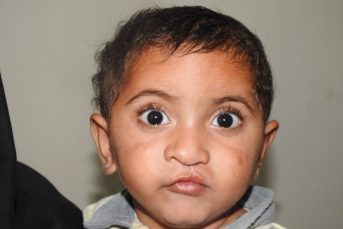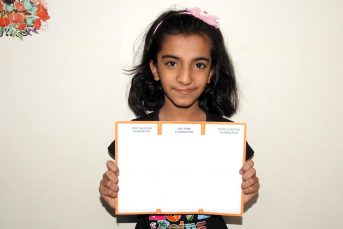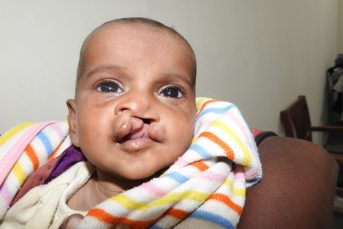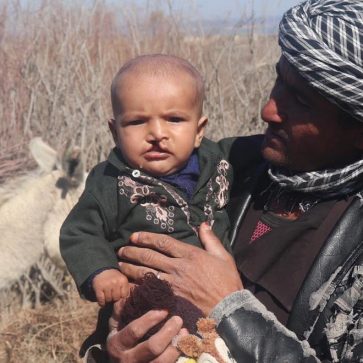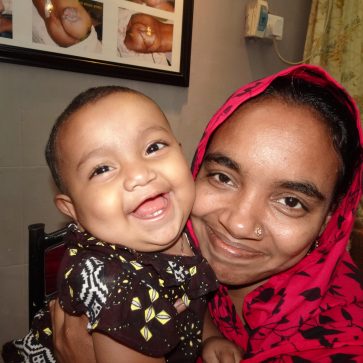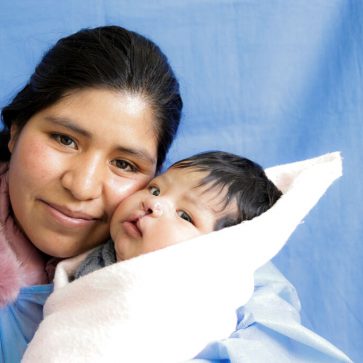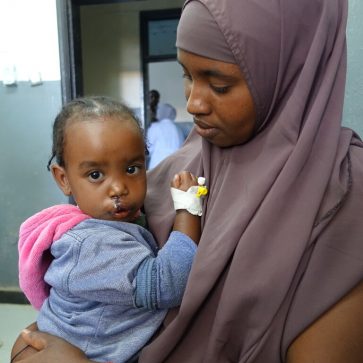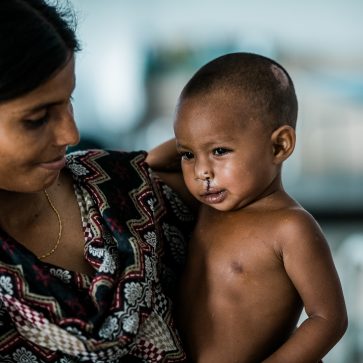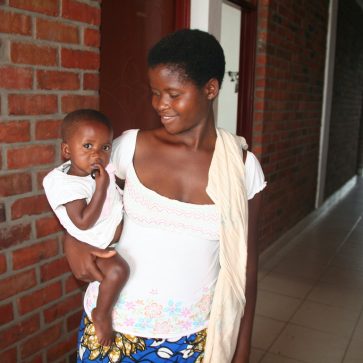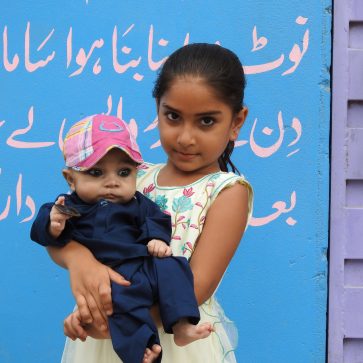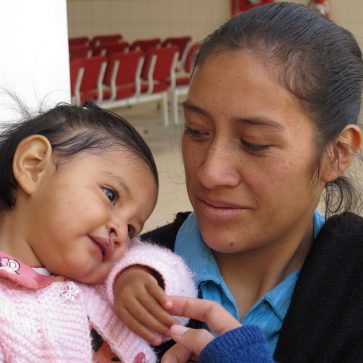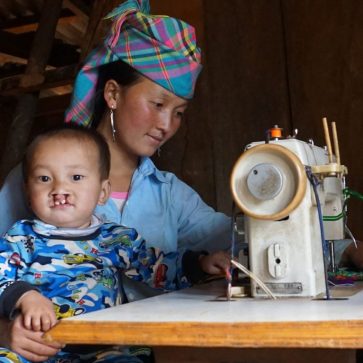Some 17,000 children are born in Pakistan every day. Some 31 of them have a cleft lip and palate. Mohsin from Sindh is one of them.
Help for cleft children in Pakistan
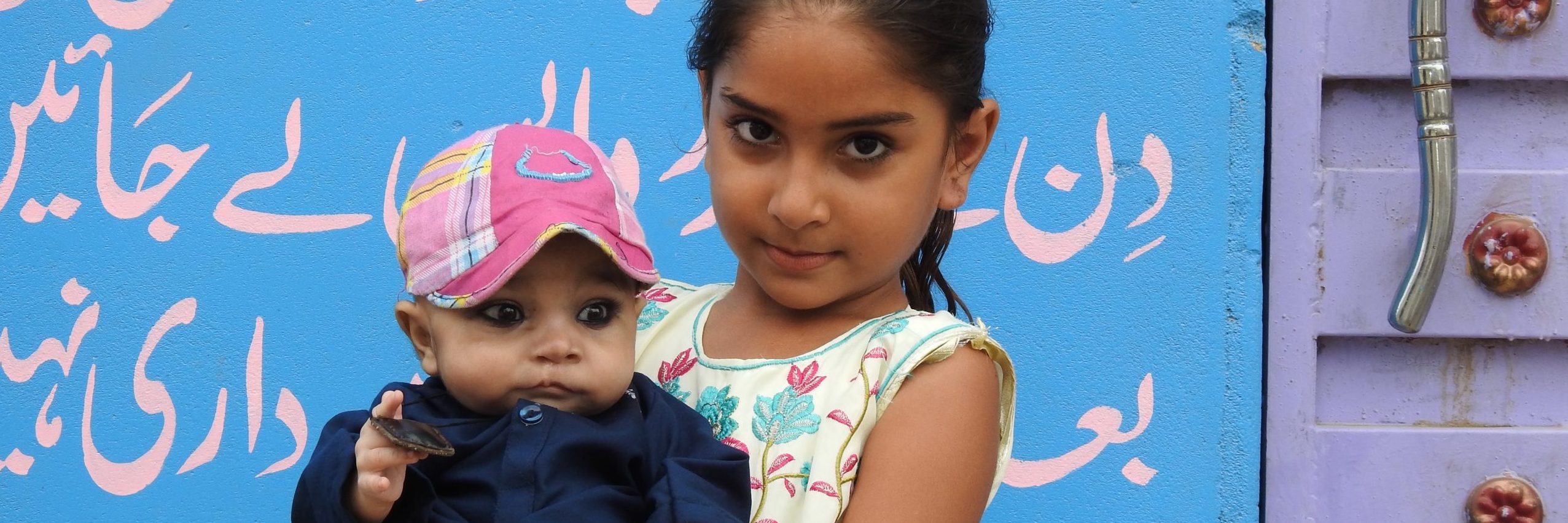 Muhammad mit Schwester vor seinem Haus.
Muhammad mit Schwester vor seinem Haus.Our work in Pakistan in numbers
We have been active in Pakistan since 2013. In the meantime, Pakistan has become one of our biggest project countries.
The result of our work in Pakistan: more than 7,781 surgeries provided between 2013 and 2023.
In 2023, our Pakistani team provided 1,280 cleft surgeries.
Deutsche Cleft Kinderhilfe in Pakistan
In Pakistan, some 9,000 children are born with cleft lip and palate each year. Only about half of these children receive surgery. Although there are some plastic surgeons in Pakistan, only a few operate cleft lip and palate. Most lack the expertise. In addition, the treatment of a child - if it comes from a poor background - is not very lucrative. The children then often do not even get a place in the public hospitals.
Our project in Pakistan is based in Karachi, the capital of Sindh province. With some 21 million inhabitants (source: metropolen-der-zukunft.com), Karachi is the largest city in Pakistan and one of the largest cities in the world. In order to also help the many children with cleft malformation outside of Karachi, our Pakistani team regularly conducts surgical missions in the surrounding areas.
With a project start date in 2013, Pakistan is one of our more recent projects. The project's development since then has been excellent. In late 2020, we launched a BMZ-funded project to establish an interdisciplinary cleft center in Karachi. The overarching goal of the three-year grant is to improve the social integration of the children treated by our team.
Key areas of our work in Pakistan
Surgery
In 2022, we provided 1,397 surgeries in Pakistan - nearly 400 more than in 2021, making Pakistan one of our top three countries by number of surgeries, along with India and Bangladesh.
Education
Prof. Ganatra, who has led our project in Pakistan since 2016, is committed to raising awareness for our aid work in Pakistan. He lectures at universities and is active in education. Through broad-based awareness campaigns, we raise awareness for our cleft project in Karachi and communicate our team's regular surgery missions to hospitals in other parts of the country. After the surgery, social workers maintain contact with the families, answer their questions and remind them of follow-up appointments.
Comprehensive cleft therapy
Under the umbrella of "Cleft Pakistan," Prof. Ganatra and his team offer services from all medical disciplines relevant to the treatment of cleft lip and palate: Surgery, pediatrics, speech therapy, psychosocial care, ENT, dentistry and orthodontics.
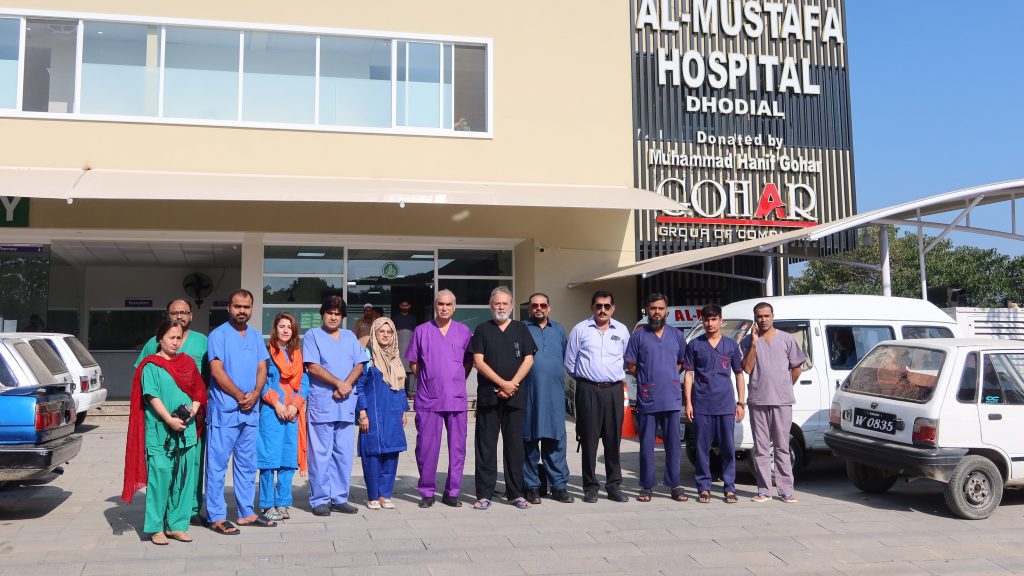 The Cleft Pakistan team during a mission to treat patients in Dhodial.
The Cleft Pakistan team during a mission to treat patients in Dhodial.Our partners in Pakistan
We have been active in Pakistan since 2013. After a few years of laying the foundation for the projct, we were able to expand our aid effort in 2016 through a cooperation with the experienced cleft surgeon Prof. Muhammad Ashraf Ganatra and the charity Al-Mustafa Welfare Society. The Al-Mustafa Welfare Society is one of the most renowned non-profit organizations in Pakistan. Since 1983, it has been committed to providing low-income people with access to healthcare and education. It operates schools and various medical facilities. In 2007, the non-profit organization initiated a cleft aid program. The Al-Mustafa Medical Centre in Karachi is the permanent project site, and "Cleft Pakistan" forms the umbrella of the successful partnership in Pakistan. The project is supervised on behalf of DCKH on a voluntary basis by the German surgeon Dr. Ulrike Lamlé.
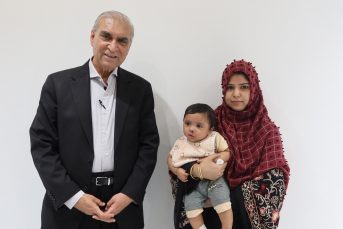 Prof. Ganatra after surgery with his little patient Abdullah and his mother.
Prof. Ganatra after surgery with his little patient Abdullah and his mother.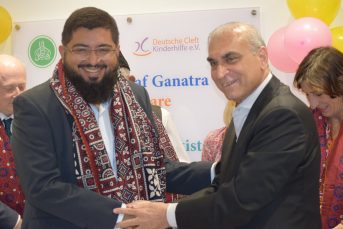 Prof. Ganatra with Mr. Ahmed (Secretary general, Al Mustafa Welfare Society)
Prof. Ganatra with Mr. Ahmed (Secretary general, Al Mustafa Welfare Society)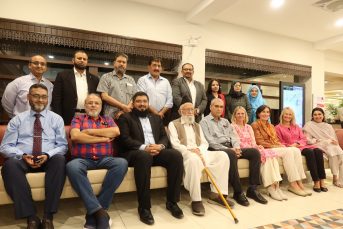 The Cleft Pakistan team.
The Cleft Pakistan team.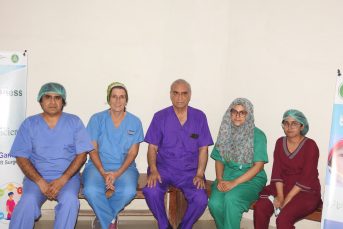 Dr. Mukesh, Dr. Ulrike, Prof. Ganatra, Dr. Zaara, Dr. Dania
Dr. Mukesh, Dr. Ulrike, Prof. Ganatra, Dr. Zaara, Dr. Dania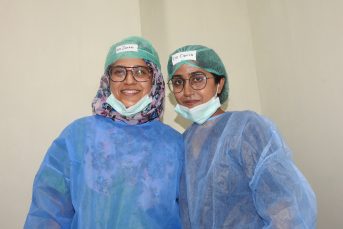 Junior surgeon Dr. Zaara and trainee Dr. Dania
Junior surgeon Dr. Zaara and trainee Dr. Dania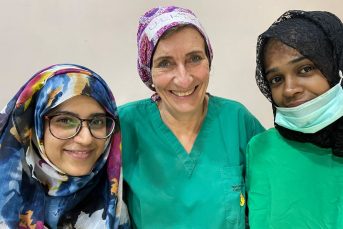 Dr. Ulrike Lamlé during an aid mission in Tando Muhammad Khan on 25/26 February 2022.
Dr. Ulrike Lamlé during an aid mission in Tando Muhammad Khan on 25/26 February 2022.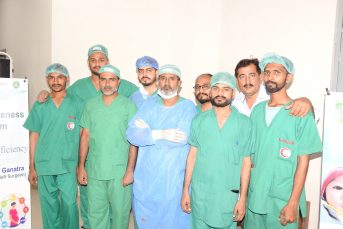 OT technicians and nurses.
OT technicians and nurses.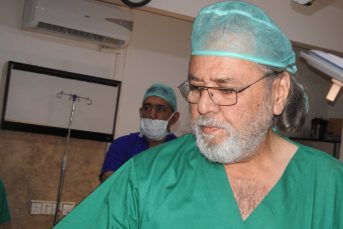 Senior anesthesist Dr. Alamgir.
Senior anesthesist Dr. Alamgir.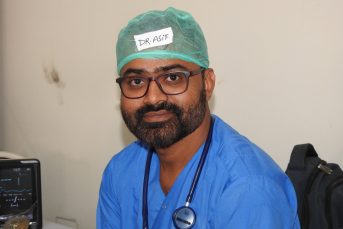 Junior Anesthesist Dr. Asif.
Junior Anesthesist Dr. Asif.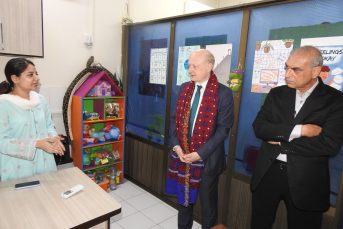 Psychologist Suha Tariq with German Consul General Rüdiger Lotz and Prof. Ganatra
Psychologist Suha Tariq with German Consul General Rüdiger Lotz and Prof. Ganatra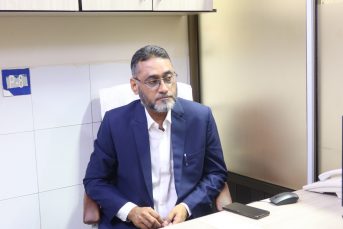 ENT doctor Dr. Shahid Faizani
ENT doctor Dr. Shahid Faizani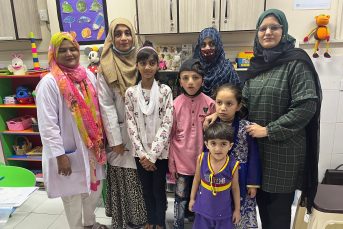 The speech therapy team with patients. Ms. Sobia Ashfaq (right)
The speech therapy team with patients. Ms. Sobia Ashfaq (right)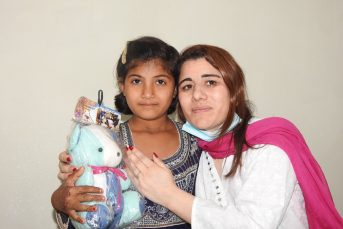 Bashira, our social worker
Bashira, our social worker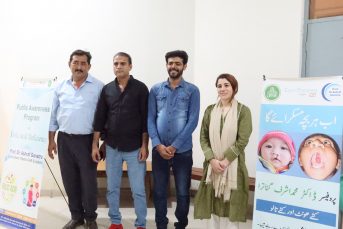 Nasrullah (camp manager), Ghulam Murtaza Qazi (media coordinator), Sohail (photographer, assistant), Bashira (social worker)
Nasrullah (camp manager), Ghulam Murtaza Qazi (media coordinator), Sohail (photographer, assistant), Bashira (social worker)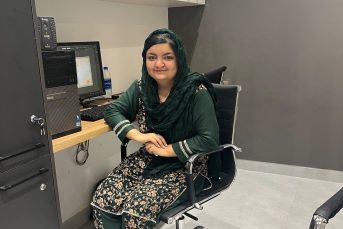 Umme Laila, call contact person. She is a former patient of Prof. Ganatra
Umme Laila, call contact person. She is a former patient of Prof. GanatraImpressions from our work in Pakistan
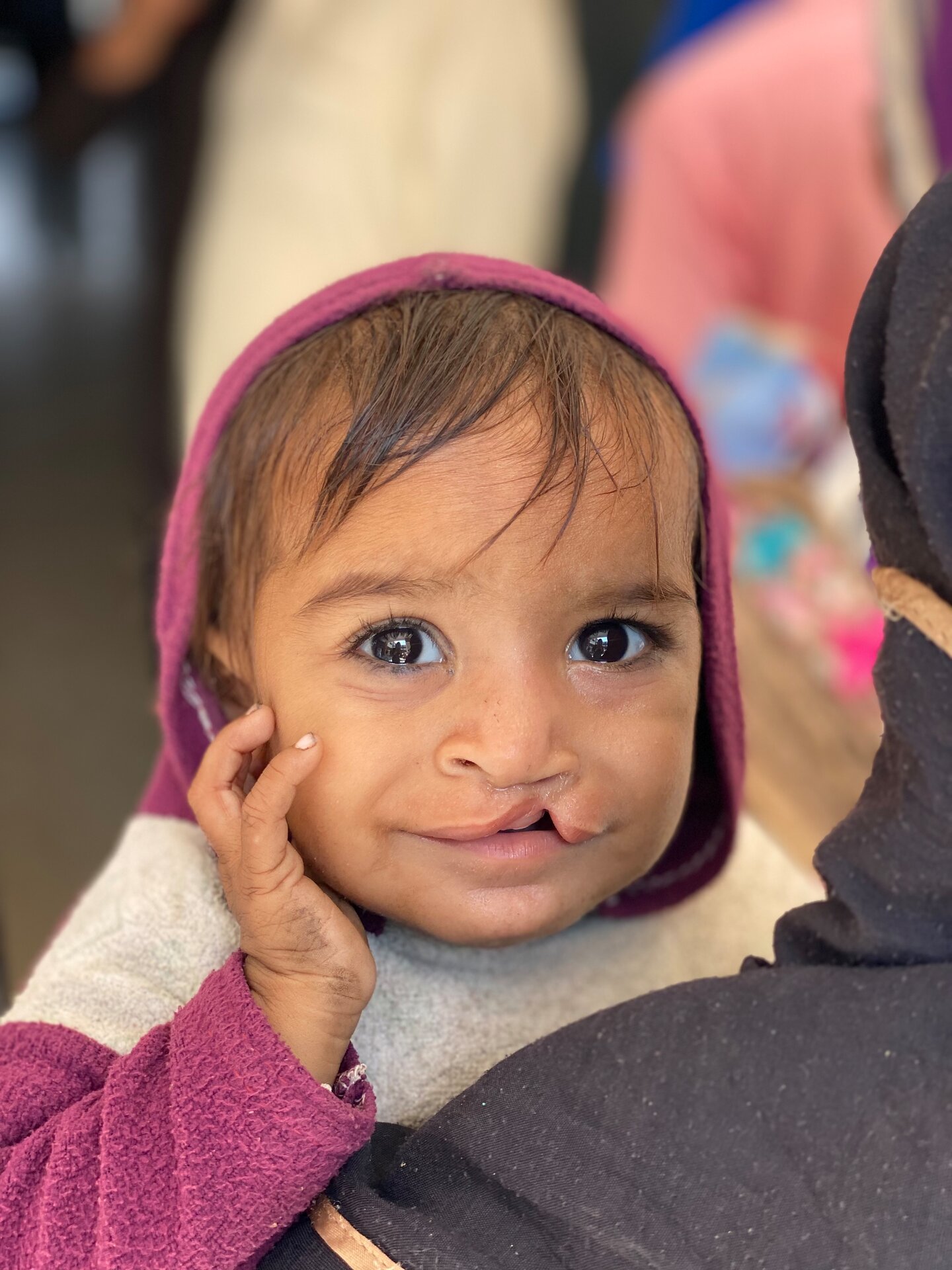
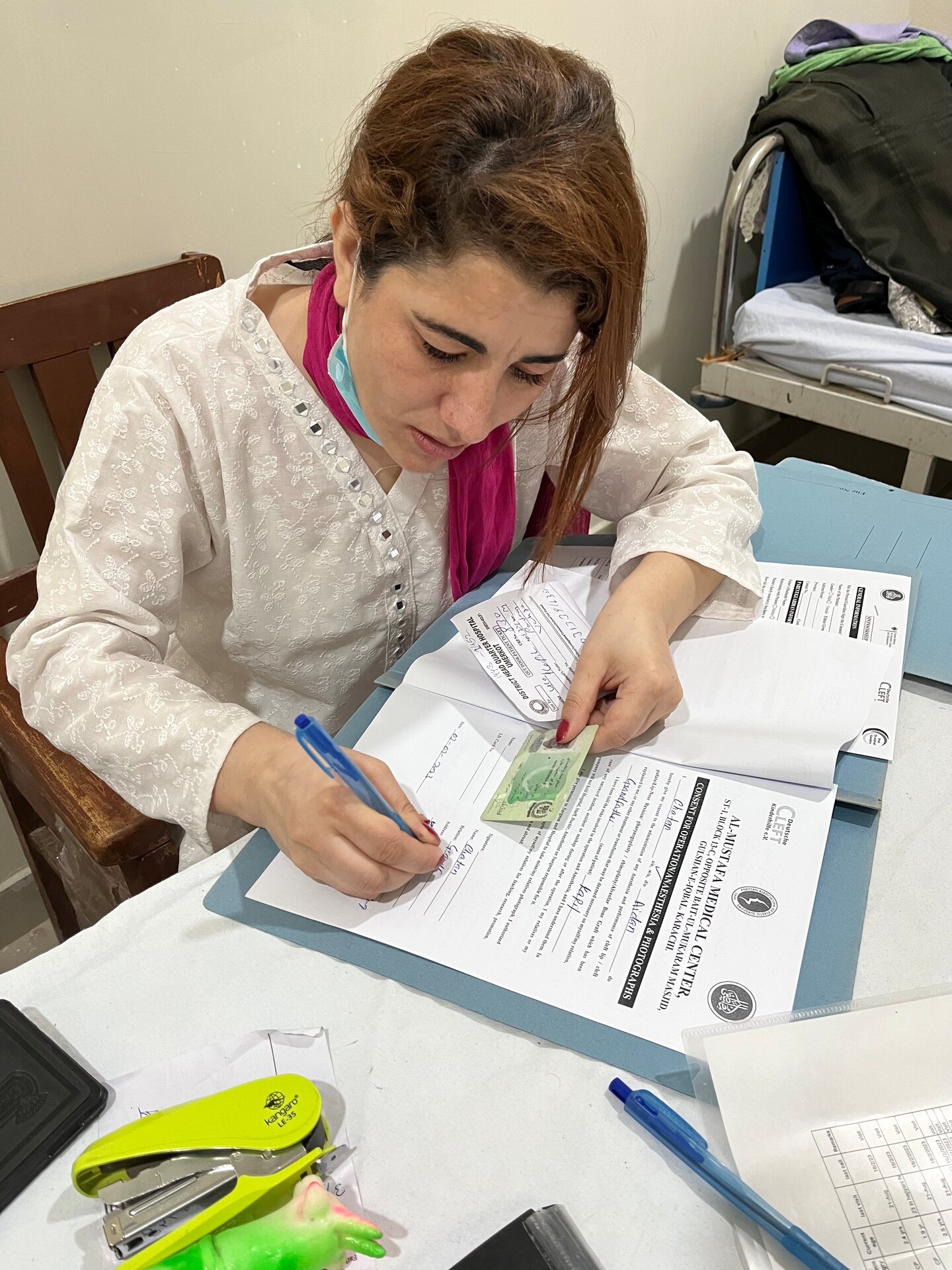
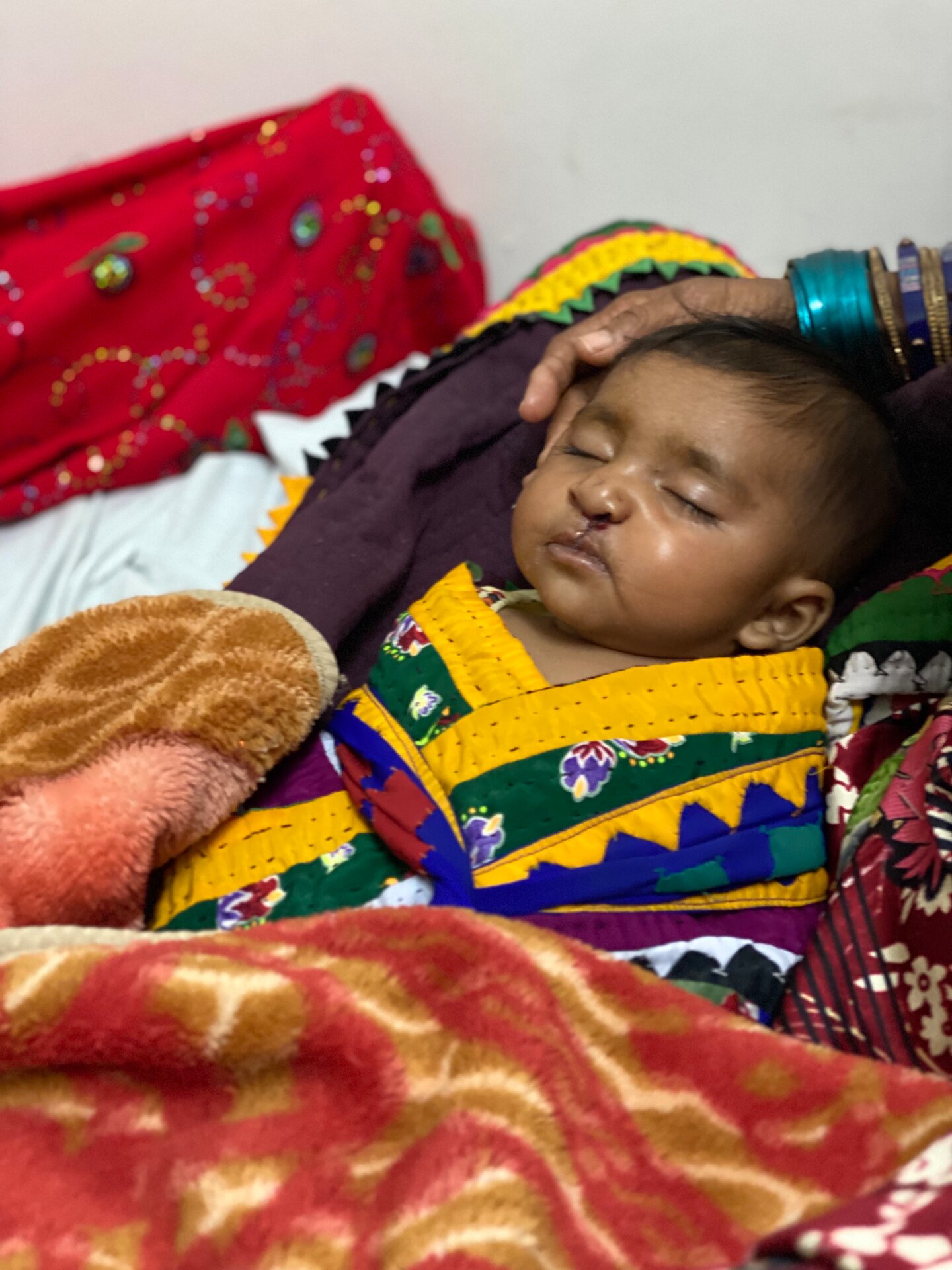
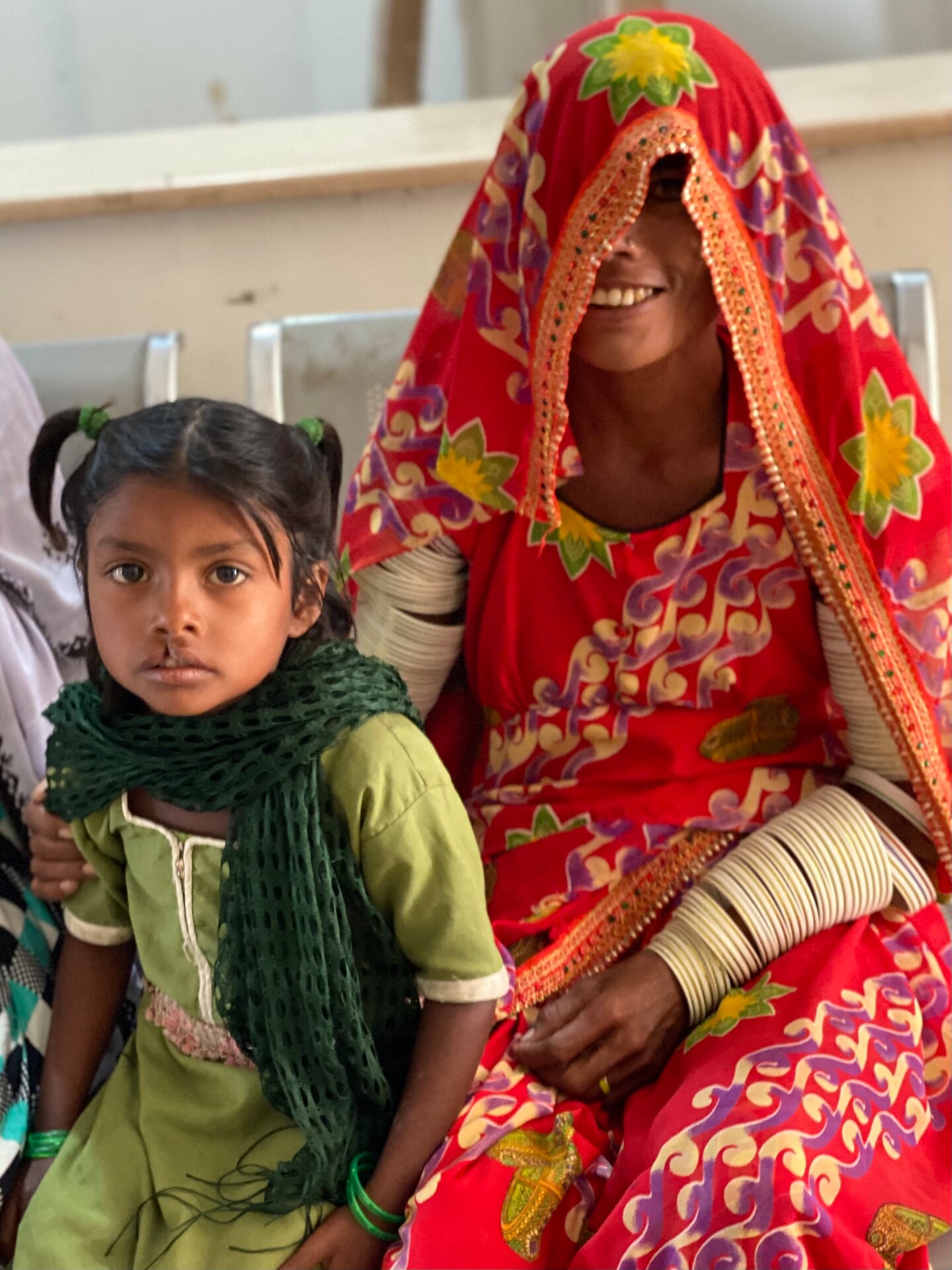
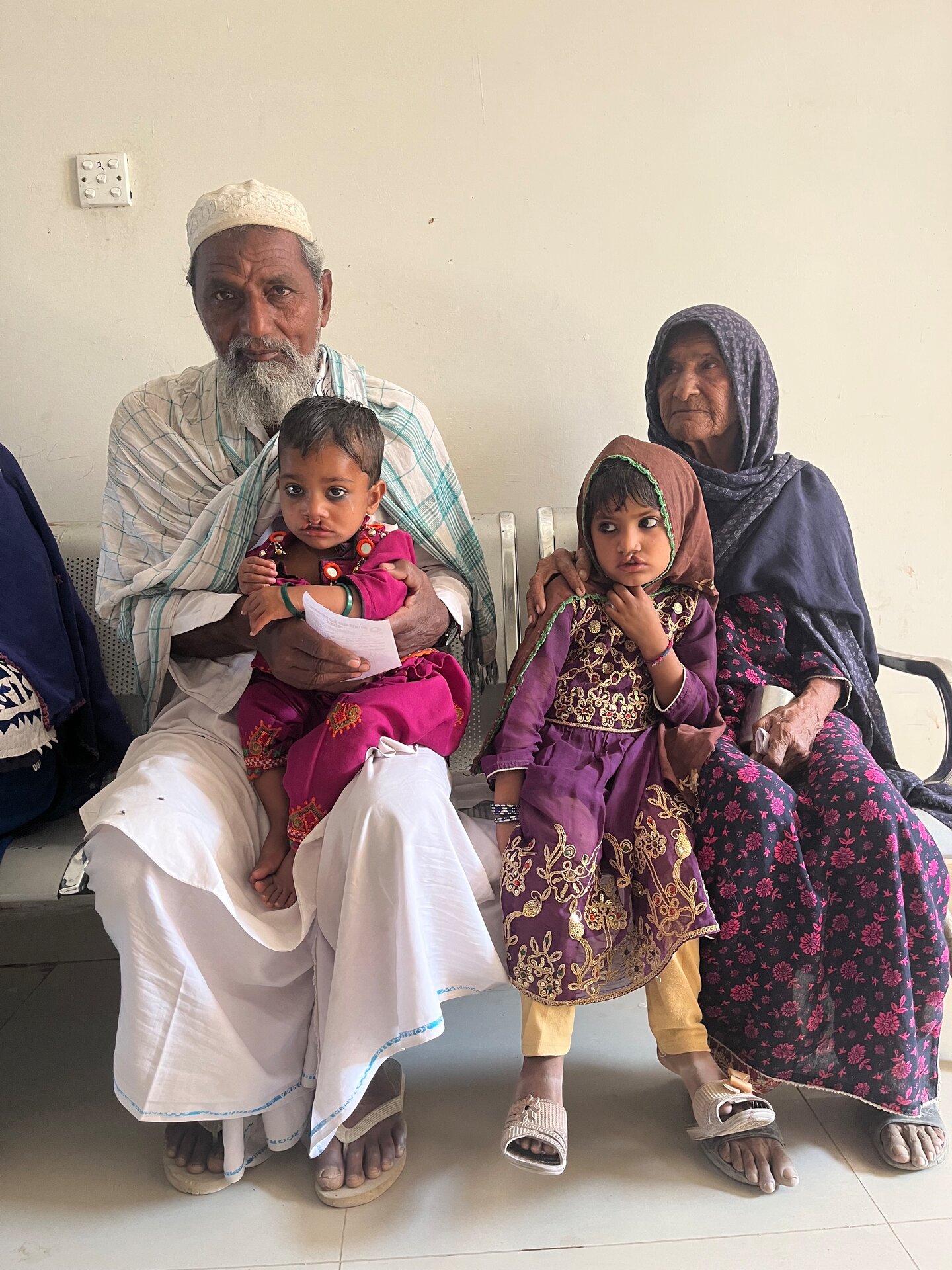
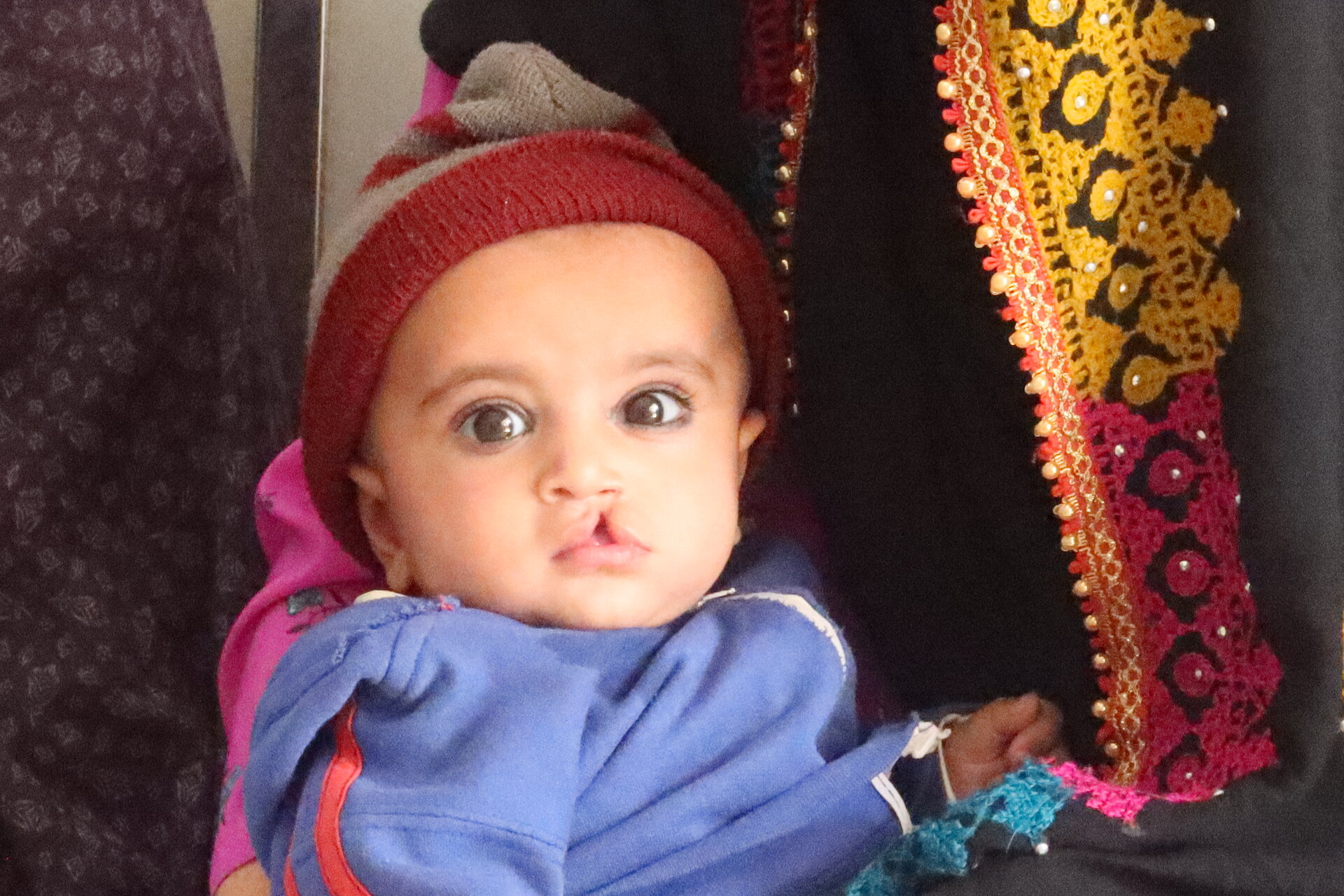
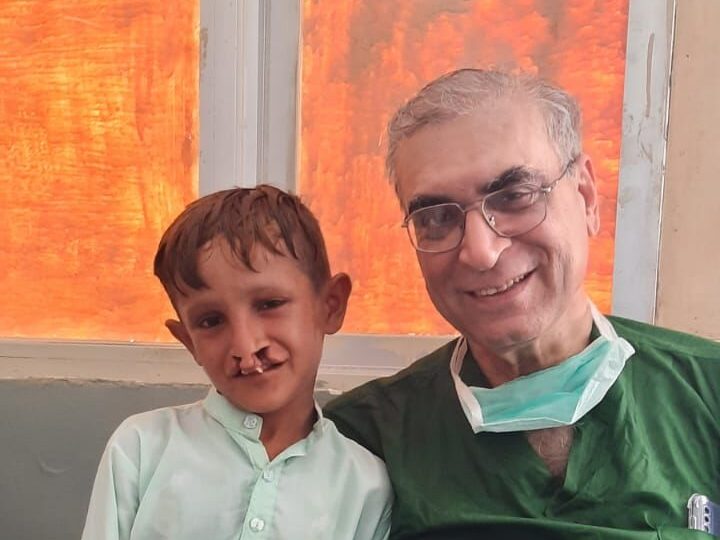
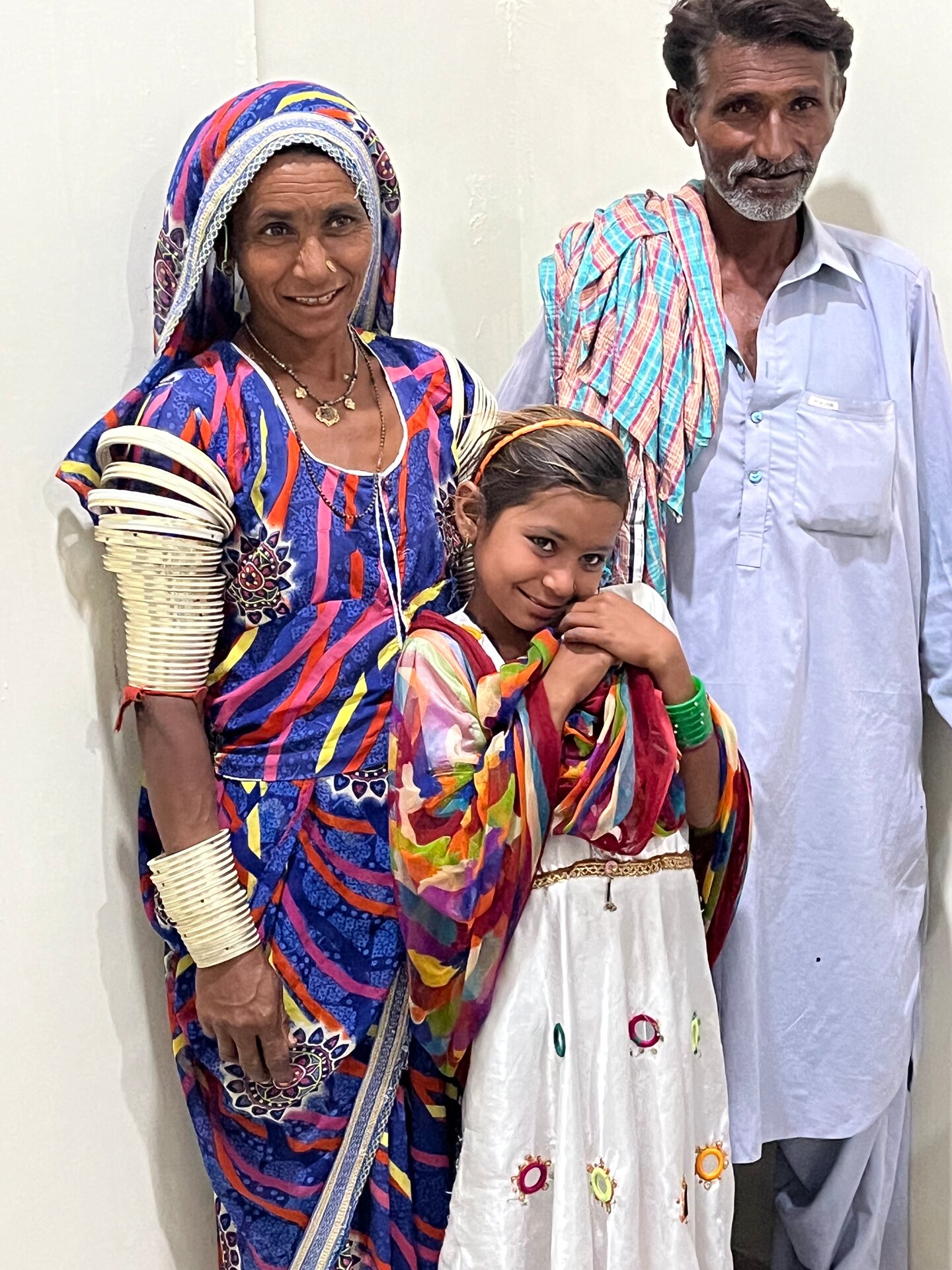
Country portrait Pakistan
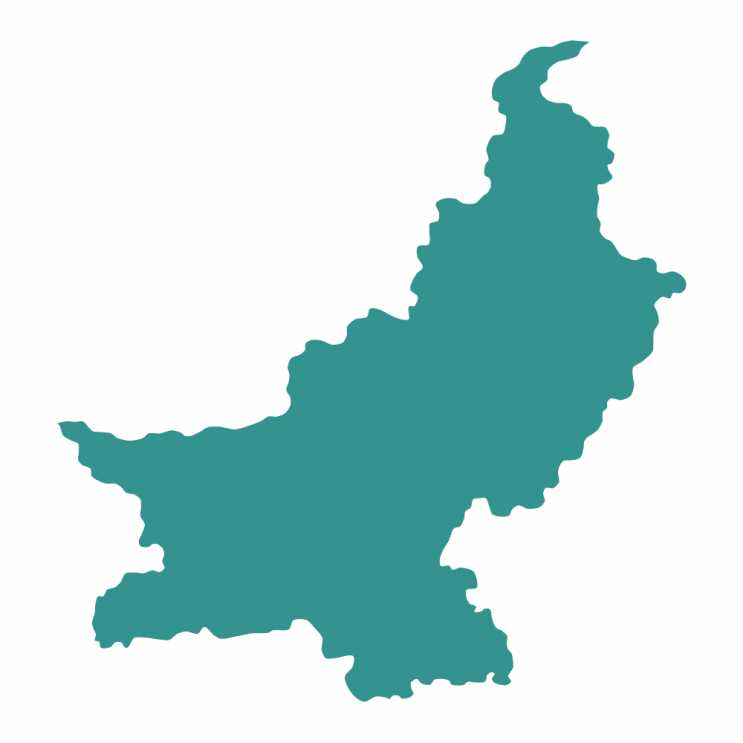
It was not until 1947 that Pakistan was separated from India. The goal was to establish an independent state for the Muslim citizens of what had until then been British India. A new federal state was created with the four provinces of Punjab, Sindh, Baluchistan and Khyber-Pakhtunkhwa and the capital territory of Islamabad. In addition, Pakistan controls the Gilgit-Baltistan and Azad Jammu & Kashmir areas on the Pakistani-administered side of Kashmir. The border situation in Kashmir still is a source of conflict between India and Pakistan.
Although the security situation in Pakistan has improved in recent years, the threat of political or religious extremism remains a problem. The religious minorities in the country, primarily Christians and Hindus, are particularly affected by this.
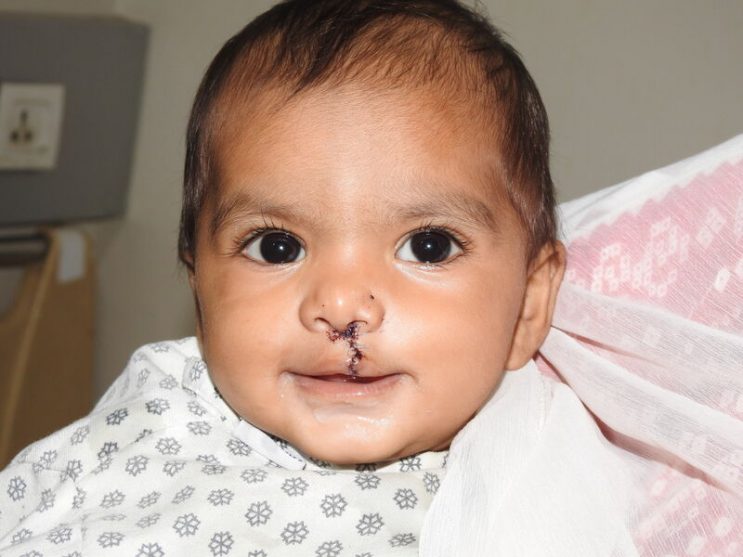
A new life for a child
The surgery is a key turning point in the life of a child with cleft. With your donation, you help change a child's life for the better.
Any amount helps.
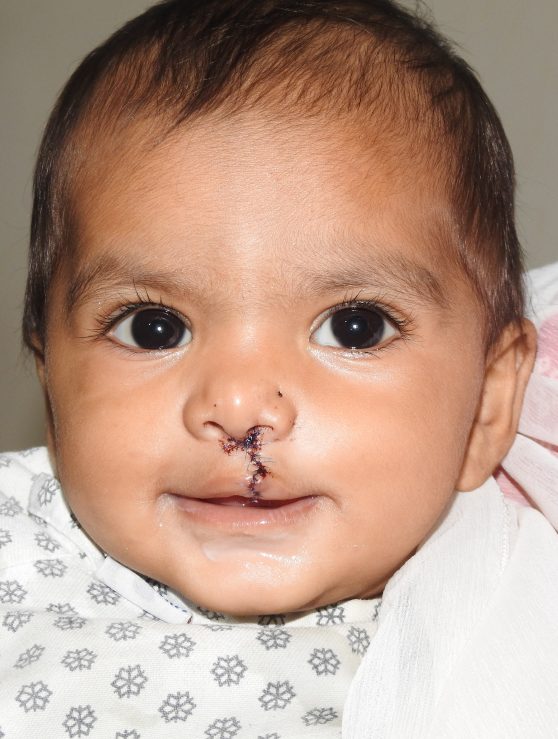
Give a child a new life
The surgery is a decisive turning point in the life of a child with cleft lip and palate. With your donation, you can help give a child's life a turn for the better.
Any amount helps.

